The views expressed in our content reflect individual perspectives and do not represent the official views of the Baha'i Faith.
In the interests of exploring how to personally approach the Creator, the Baha’i Faith offers a roadmap for the spiritual seeker – a way to grow closer to the Source of all life.
Let’s put things in perspective: If an ever-present Creator of the universe exists – who may also be the Creator of other universes as well, depending on how we define the word “universe” – that Being, by definition, is all-powerful, and many other superlatives as well.
How can we possibly approach such a Being?
Certainly, we should start with a sense of humility, or at least an awareness of our relative positions. Can we – puny, myopic, and dependent as we are – define and dictate our terms of belief to the Creator of the universe?
Surely this assumes a capacity we do not have, and would attempt to, in the parlance of the Qur’an, make us partners with God, setting ourselves up as God’s evaluative equal. Few thoughtful people of any religion really believe that we have that status, even if we do have an imprint of the divine within us. So, it makes sense that God may require us to recognize our complete dependence on Him – our poverty – as our first act in coming to know the wealth of Him who provides for all:
The realm of Divinity is an indivisible oneness, wholly sanctified above human comprehension; for intellectual knowledge of creation is finite, whereas comprehension of Divinity is infinite. How can the finite comprehend the infinite? We are utter poverty, whereas the reality of Divinity is absolute wealth. How can utter poverty understand absolute wealth? We are utter weakness, whereas the reality of Divinity is absolute power. Utter weakness can never attain nor apprehend absolute power. – Abdu’l-Baha, The Promulgation of Universal Peace, p. 172.
This is, in fact, how we often find enrichment beyond ourselves. The awareness of our relative poverty, our need, and our dependence, sets in motion the possibility of our betterment.
When we are alone, we seek the solace of another; when we are few, we seek to add to our number; when we feel weak, we seek to gain spiritual strength; when we are ignorant, we seek to know; when we need to communicate, we seek someone to hear us. Understanding our relative poverty, our dependence, compels us to look beyond ourselves to find that which gives us more meaning, more connection with our universe:
The honor of man is through the attainment of the knowledge of God; his happiness is from the love of God; his joy is in the glad tidings of God; his greatness is dependent upon his servitude to God. The highest development of man is his entrance into the divine Kingdom, and the outcome of this human existence is the nucleus and essence of eternal life. – Ibid., p. 335.
Naturally, we look to family, friends and community; to education, art, and work; to touch something beyond ourselves, an “other” vibrating in harmony with ourselves and with the universe. This underlying, vibrating connection is there for free. But to find it, we must first come to know that we need God, or at least we need to quiet ourselves, so we may gaze in awe at the Creator’s creation. As the Buddhists would say, until we stand in recognition of suchness, and feel what is there for us: God’s living presence.
We can see this living presence reflected in the beauty and grandeur of nature:
Nature in its essence is the embodiment of My Name, the Maker, Creator. Its manifestations are diversified by varying causes, and in this diversity there are signs for men of discernment. Nature is God’s Will and is its expression in and through the contingent world. It is a dispensation of Providence ordained by the Ordainer, the All-Wise. – Baha’u’llah, Tablets of Baha’u’llah, p. 142.
As human beings, we’re creatures of the natural world, bipedal omnivorous mammals with living, breathing, warm-blooded bodies – but that reality does not define or limit our only reality. The Baha’i teachings, and the teachings of every great religion, testify that we also have a powerful spiritual reality:
These energies with which the Day Star of Divine bounty and Source of heavenly guidance hath endowed the reality of man lie, however, latent within him, even as the flame is hidden within the candle and the rays of light are potentially present in the lamp. The radiance of these energies may be obscured by worldly desires even as the light of the sun can be concealed beneath the dust and dross which cover the mirror. Neither the candle nor the lamp can be lighted through their own unaided efforts, nor can it ever be possible for the mirror to free itself from its dross. It is clear and evident that until a fire is kindled the lamp will never be ignited, and unless the dross is blotted out from the face of the mirror it can never represent the image of the sun nor reflect its light and glory. – Baha’u’llah, Gleanings from the Writings of Baha’u’llah, pp. 65-66.
Who lights that candle? What possible force ignites the fire of the human spirit? Baha’is believe that an almighty God sends divine messengers to humanity to found our Faiths and light our lamps:
… since there can be no tie of direct intercourse to bind the one true God with His creation, and no resemblance whatever can exist between the transient and the Eternal, the contingent and the Absolute, He hath ordained that in every age and dispensation a pure and stainless Soul be made manifest in the kingdoms of earth and heaven. Unto this subtle, this mysterious and ethereal Being He hath assigned a twofold nature; the physical, pertaining to the world of matter, and the spiritual, which is born of the substance of God Himself. – Ibid., p. 66.







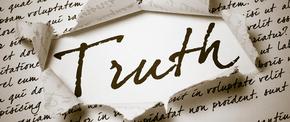

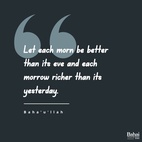
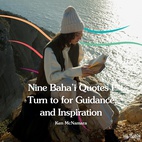
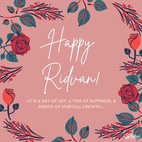
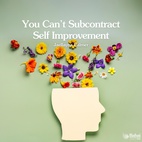
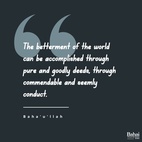
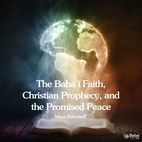
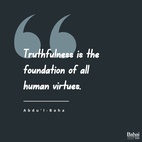

Comments
Sign in or create an account
Continue with Facebookor